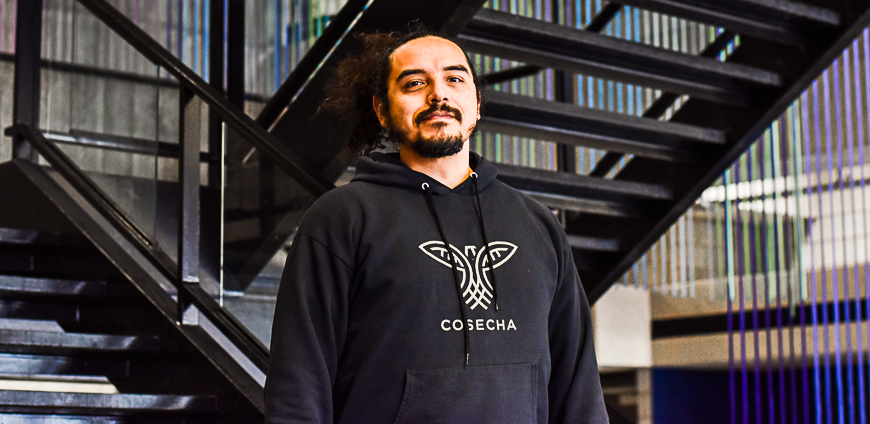“A Completely Different Set of Possibilities”: In Conversation with David Melendez

“When we talk about Shakespeare, it’s 36 plays—that’s it!,” Cal State Bakersfield Professor of Theatre History & Literature David Melendez tells me. “Let’s make other works visible to expand this canon. Here we have a completely different set of possibilities.” Those possibilities are the many works written across the Hispanic world during the early modern period, a corpus of plays long obscured by the Shakespeare-centric focus of classical theatre in the United States.
Melendez and a group of students will be staging Ana Caro’s The Courage to Right a Woman’s Wrongs, the Diversifying the Classics translation of Valor, agravio y mujer, October 26–29 at CSUB’s Doré Theatre. Producing the play, Melendez says, extends the mission of CSUB as a Hispanic Serving Institution, a designation it shares with a few hundred universities across the country with a Hispanic student population that is 25% or greater. “We’re in Bakersfield, you know!,” he says.
The decision to produce the play emerged from Melendez’s course on theatre history, designed to show students “what scholarship can do” to enhance and expand on performance and foster awareness of diverse theatrical traditions. The course culminated in a symposium on theatre history, in which students presented on a play from that expanded canon of classical drama. A student who presented on Guillén de Castro’s The Force of Habit (Diversifying the Classics’ translation of La fuerza de la costumbre) was “absolutely taken” with the interrogation of normative gender roles in the play.
The intent of this course and the upcoming production is not to uncritically celebrate some sense of Spanish identity or culture, says Melendez, who has also been connected with the Native and Indigenous Student Coalition at CSUB. While acknowledging the tension between Spanish and Indigenous communities, he notes, studying these plays remains a productive inquiry to the history of this part of the world. Melendez’s students are particularly attentive to mentions of Spanish-Colonial relationships in the play as well as the production of playwrights in the Americas. To explore Sor Juana’s Love is the Greater Labyrinth (Diversifying the Classics’ translation of Amor es más laberinto), Melendez notes, is to discover a Mexican nun who is “running circles around” the male writers of her time.
The upcoming production of Courage, Melendez says, is not meant to be “just a one-off.” Given the annual Bakersfield College Shakespeare Festival, he looks forward to the possibility of staging the comedia with greater regularity, perhaps even bringing back some of the original Spanish dialogue for the California stage. Including the Spanish language also helps present the broader Spanish cultural influence on what is now the US, often “minimized” by how United States history is taught.
The canon is out there if you look for it, and it’s already diverse. The question is what students, scholars, and theatre-makers can do with it. Melendez and his students at CSUB offer a template for how a university can extend its mission through the production of theater. Noting both the sheer number of comedia texts as well as their dramatic richness, Melendez imagines much more theater to come: “If you have something fantastic, and no one uses it, what good is that? You can’t unthink a thought. This is a possibility. It’s always going to be a possibility—a whole set of possibilities.”[/vc_column_text][/vc_column][/vc_row]



No Comments